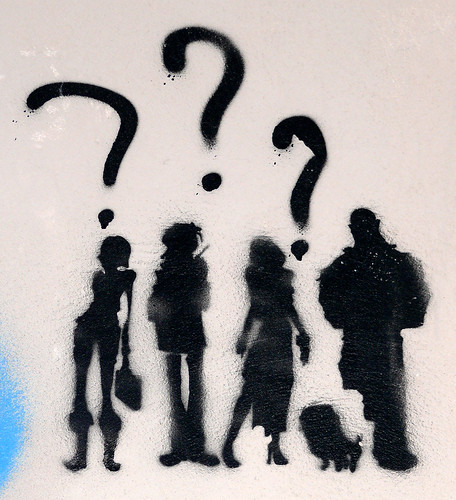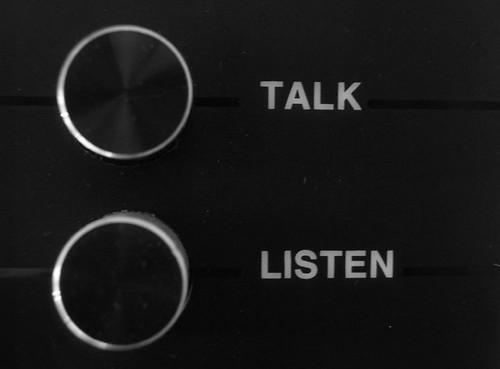Here’s the best way to apologize
n't apologize for what you think you did wrong. Apologize for what they think you did wrong: Apologies are useful social tools that can act as catalysts in the resolution of conflict and inspire forgiveness. Yet as numerous real-world blunders attest, apologies are not always effective. Whereas many lead to forgiveness and reconciliation, others simply fall on deaf ears. Despite the fact that apologies differ in their effectiveness, most research has focused on apologies as dichotomous phenomena wherein a victim…
1 min read
Guys, how should you speak so women remember what you say?
en take note: If you want women to remember, speak to them in a low pitch voice." Via Eurekalert: ...according to a new study by David Smith and colleagues from the University of Aberdeen in the UK. Their work shows for the first time that a low masculine voice is important for both mate choice and the accuracy of women's memory. The research is published online in Springer's journal, Memory & Cognition. Join over 190,000 readers. Get a free weekly update via…
1 min read
How much of office gossip is true?
a Dimensions of Nursing Management: The informal communication network -- i.e. the grapevine -- is an inherent part of the organization. This network helps employees to make sense about the world around them and in this way it provides a relief from emotional stress. If left unguarded, the grapevine can become an organization's worst enemy, but when it is managed properly it can significantly increase the productivity and job satisfaction of employees (Simmons 1985L 39). The grapevine's communication does not…
1 min read
Do rhetorical questions make arguments more or less persuasive?
undergraduates were exposed to arguments advocating supplemental vitamin use. Ending arguments with rhetorical questions (when compared with statements) resulted in more favorable attitudes towards vitamin use and a more favorable profile of questions generated about the message topic. The question profile, principally reflecting uncertainty concerning personal nutrition, mediated the attitudinal effect. Source: "Question effects on question generation and the mediation of attitude change." from Psychol Rep. 1994 Aug;75(1 Pt 1):209-10. Join over 135,000 readers. Get a free weekly update via email here. Related…
1 min read
Should you be optimistic going into negotiations?
o studies demonstrate that negotiation processes and outcomes can be altered by the creation of Positive Expectations. Study 1 participants were American undergraduates seeking agreement with a confederate about allocation of funds to programs differentially favoring undergraduates vs. graduates. Study 2 participants were Israeli Business School students seeking agreement with an Arab confederate about allocation of funds to projects differentially favoring Israelis vs. Palestinians. In both studies prior information suggesting the consistent success of previous dyads prompted acceptance of the…
1 min read
An easy way to dramatically improve your listening skills:
e technique is called non-evaluative listening: We can achieve real communication and avoid this evaluative tendency when we listen with understanding. This means seeing the expressed idea and attitude from the other person’s point of view, sensing how it feels to the person, achieving his or her frame of reference about the subject being discussed. This may sound absurdly simple, but it is not. In fact, it is an extremely potent approach in psychotherapy. It is the most effective way…
2 minutes
What are the first words you should say in a negotiation?
mething very similar to what the guy on the other side of the table just said: We hypothesized that in online, virtual formats, negotiators receive better outcomes when mimicking their counterpart's language; furthermore, we predicted that this strategy would be more effective when occurring early in the negotiation rather than at the end, and should also be effective across both independent and interdependent cultures. Results from two experiments supported these hypotheses. Experiment 1 was conducted in Thailand and demonstrated that…
1 min read
Does saying you’re sorry really make a difference?
en doctors accused of malpractice are allowed to apologize (without admitting blame) average settlement price goes down: Physicians’ apologies for adverse medical events are acknowledged as a factor in patients’ decisions to litigate. Apology laws which render physicians’ apologies inadmissible in court are written to encourage patient-physician communication and to overcome the physicians’ disinclination to apologize because apologies could invite lawsuits. We present a novel model of apologies and malpractice in order to examine whether state-level apology laws have an…
1 min read








